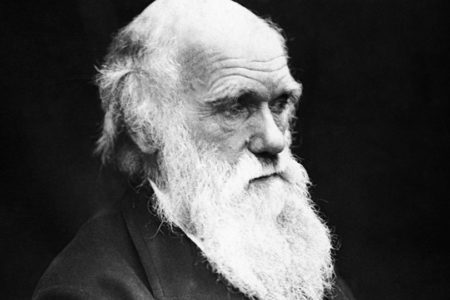Israel’s Glorious Restoration
Zechariah 8:1–23
In the previous chapter, a delegation from Bethel questioned the necessity of continuing to fast over the destruction of Solomon’s Temple. Zechariah did not address the issue directly; instead, he used the question to reflect on how God disciplined the nation’s forefathers in the past because of their disobedience (7:8–14). He warned the returning remnant that failure to repent of sin would bring the same judgment (1:1–6).
In chapter 8, Zechariah turned from God’s past discipline to bring the remnant a new message of hope. He focused on the Millennial Kingdom when Israel will experience restoration, renewal, peace, and prosperity. In that day, Israel’s fasting will be replaced with joyful feasting. The phrase the Lᴏʀᴅ of Hosts (used 18 times in this chapter) reassured Israel that God will fulfill His Kingdom promises.
Israel Restored
Zechariah began his third message to the delegation with the following statement:
Again the word of the Lᴏʀᴅ of hosts came, saying, “Thus says the Lᴏʀᴅ of hosts: ‘I am zealous for Zion with great zeal; with great fervor I am zealous for her’” (vv. 1–2).
In these opening verses, God clearly and repeatedly expressed His great love for Israel. The word zealous in Hebrew is the word for “jealous” and is used three times to express the depth and intensity of God’s burning and passionate love for Israel. His love for the Jewish people will tolerate no rivals (Ex. 34:14) in much the same way that a husband claims exclusivity over his wife. God, in His righteous jealousy, comes to Israel’s defense and wages war in great wrath against all who try to thwart His purposes and plans for this nation (1:14–15; cf. Ezek. 38:18–19).
The Lord further stated, “I will return to Zion, and dwell in the midst of Jerusalem” (v. 3). This return and dwelling will take place at His Second Advent. In that day the Lord will “dwell,” or settle down, in Jerusalem and make the city His spiritual and political capital from which He will rule the world. Jerusalem will be called the “City of Truth” (v. 3) because the Messiah will rule in truth (Rev. 19:11). Verse 3 also states that the Temple Mount will be called “The Holy Mountain” because the Messiah’s presence will sanctify it as the holy place where God will be worshiped in truth.
Jerusalem will become a city of peace, safety, security, and divine blessing where men and women, well advanced in age (Isa. 65:20), sit without fear for their safety. Boys and girls will also fill the streets of Jerusalem and laugh and play without fear (vv. 4–5).
These promises might have seemed unbelievable to the Jewish people returning from exile in Babylon or, for that matter, to any generation of Jewish people. So the Lord posed a rhetorical question:
“Thus says the Lᴏʀᴅ of hosts: ‘If it is marvelous [difficult] in the eyes of the remnant of this people in these [those] days, will it also be marvelous [difficult] in My eyes?’ Says the Lᴏʀᴅ of hosts” (v. 6).
In other words, nothing is difficult or insurmountable for God, including delivering the Jewish people of Zechariah’s generation or any generation, for that matter. In fact, God will execute one of the greatest deliverances and gatherings of Jewish people at the end of the Great Tribulation (Isa. 11:11–12; 43:5–6; Mt. 24:31). In that day Israel’s relationship with the Lord will be restored, and God will again call the Jewish people “My people” (vv. 7–8; 13:9; cf. Hos. 2:23). Notice the rhetorical question in verse 6 is bracketed with the words says the Lᴏʀᴅ of hosts, giving divine authority and assurance that Israel’s deliverance at any time is never difficult for God.
Israel Renewed
The Lord then encouraged the remnant, which had started to rebuild the Temple, to finish the task:
Thus says the Lᴏʀᴅ of hosts: “Let your hands be strong, you who have been hearing in these days these words by the mouth of the prophets, who spoke in the day the foundation was laid for the house of the Lᴏʀᴅ of hosts, that the temple might be built” (v. 9).
The prophets’ names are not given, but most likely they were Haggai and Zechariah. “Let your hands be strong” is meant to strengthen and encourage Israel.
Scripture gives two reasons why the Temple was not built: “There were no wages for man nor any hire for beast; there was no peace from the enemy for whoever went out or came in; for I set all men, everyone, against his neighbor” (v. 10). First, the returning remnant was poor and unable to afford the necessary resources to reconstruct the Temple. Second, civil and political strife existed within and without the Jewish community, hampering the work (Ezra 4:1–5; 5:3; 6:6, 13).
But that was then. Zechariah now had an encouraging word from the Lord: “‘But now I will not treat the remnant of this people as in the former days,’ says the Lᴏʀᴅ of hosts” (v. 11). A new day had dawned. In the past God had disciplined a disobedient Israel, but now the nation would experience His favor and blessing. Israel’s land shall prosper:
For the seed shall be prosperous [literally, “seed of peace”], the vine shall give its fruit, the ground shall give her increase,…I will cause the remnant of this people to possess all these (v. 12).
The nation will sow its seed in a time of peace, and nothing will destroy it. God will restore a heavy dew to the land (v. 12), causing the vine and the ground to produce abundant fruit. This promise to the remnant will find its greater fulfillment during the Millennial Kingdom (Amos 9:13–15).
The Lord said to Israel, “Just as you were a curse among the nations,…so I will save you, and you shall be a blessing” (v. 13). This is the theme of chapter 8. In the past, Israel was cursed among the nations because she broke God’s commandments and practiced idolatry (Dt. 28:15–68). However, the day will come when God will reverse the curse, “save” (deliver, v. 13) Israel physically and spiritually, and make her a bless-ing among the nations (Gen. 12:3).
Such a glorious promise of future blessing was meant to calm and comfort Israel in her hardship and give the nation courage to face the future. Therefore, Zechariah commanded Israel, “Do not fear, let your hands be strong” (v. 13). In other words, because of His purpose and plan for His people, God commanded them to be diligent in their efforts, trusting the outcome to God.1
The Lord continued to provide Israel with assurance that His blessings will come to fruition:
“Just as I determined to punish you when your fathers provoked Me to wrath,” says the Lᴏʀᴅ of hosts, “and I would not relent [repent or change His mind], so again in these days I am determined to do good to Jerusalem and to the house of Judah” (vv. 14–15).
As it was in God’s divine purpose to destroy Israel’s forefathers because of their disobedience, so, too, is it in His plan to bless Jerusalem and Israel. This promise awaits future fulfillment.
In light of these promises, Israel was called on to be spiritually and morally obedient to the Lord and was commanded to practice four things that would provide evidence of a restored relationship with God.
First, Israel was to “speak each man the truth to his neighbor” (v. 16). Speaking truth would prove the relationship with God had been restored. Second, Israel was to “give judgment in your [their] gates for truth, justice, and peace” (v. 16). Court decisions administered in truth at the city gate would show that justice prevailed throughout Israel and bring peace to the nation. Third, “Let none of you think evil in your heart against your neighbor” (v. 17); that is, do not plan wickedness in your mind against a fellow Israelite. Fourth, “do not love a false oath” (v. 17), or do not commit perjury in a court of law against your neighbor. God hates all these sins (v. 17; cf. prov. 6:16–19).
Israel to Rejoice
In 7:2–3 the men from Bethel had asked the priests and prophets whether the fast to commemorate the destruction of Solomon’s Temple (586 B.C.) should still be kept. A wise Zechariah did not give a direct answer but, rather, addressed the delegates’ motives for keeping the fast. If they fasted for selfish reasons or mere outward, ritualistic show, then God had no part in it. God desired obedience and justice from Israel, not ritualistic formalism. The prophet then warned the delegates and nation not to commit the sins of their forefathers (7:8–14), lest the judgment that fell on their ancestors also fall on them.
Zechariah waited to answer the delegates’ question until his fourth and final message. With the return of the remnant, a new age had dawned; and all their fasting (the fourth-, fifth-, seventh-, and tenth-month fasts) would become “cheerful feasts” (v. 19) because of the blessing Israel would experience through its restoration and spiritual renewal.
This joy is a foretaste of what Israel and the world will experience in a fuller way during the Messiah’s Millennial Reign. Because of future blessings through God’s grace and faithfulness, Israel is admonished to “love truth and peace” (v. 19).
Israel’s restoration and spiritual renewal will bring blessing to the entire world. Gentiles from “many cities” will urge one another to make a pilgrimage to Jerusalem to worship the Lord and seek His favor; the response is, “I myself will go also” (v. 21). Zechariah emphasized the certainty of this prophecy with these words: “Yes, many peoples and strong nations shall come to seek the Lᴏʀᴅ of hosts in Jerusalem, and to pray before the Lᴏʀᴅ” (v. 22).
Messiah’s rule in Jerusalem will be the main attraction for the nations coming to Israel. Redeemed Gentiles who come to Jerusalem during the Millennium will want to learn from the Jewish people: “In those days ten men from every language of the nations shall grasp the sleeve of a Jewish man, saying, ‘Let us go with you, for we have heard that God is with you’” (v. 23). Immediately on arriving in Jerusalem, 10 men will seize a flopping corner of a passing Jewish man’s garment with such intensity that they will not let go.
What nations have sought through humanistic endeavor, redeemed human -kind will realize in the God of Israel. Jewish men will be priests and ministers of God, teaching the nations what they need to know concerning the Lord in Jerusalem (Isa. 61:6). This is the day when God’s promise to the nations, “in you all the families of the earth shall be blessed” (Gen. 12:3), comes to full fruition. In that day, the nations and Israel will rejoice in the Lord’s reign and their redemption.
ENDNOTE
- J. Carl Laney, Zechariah (Chicago: Moody press, 1984), 88.






